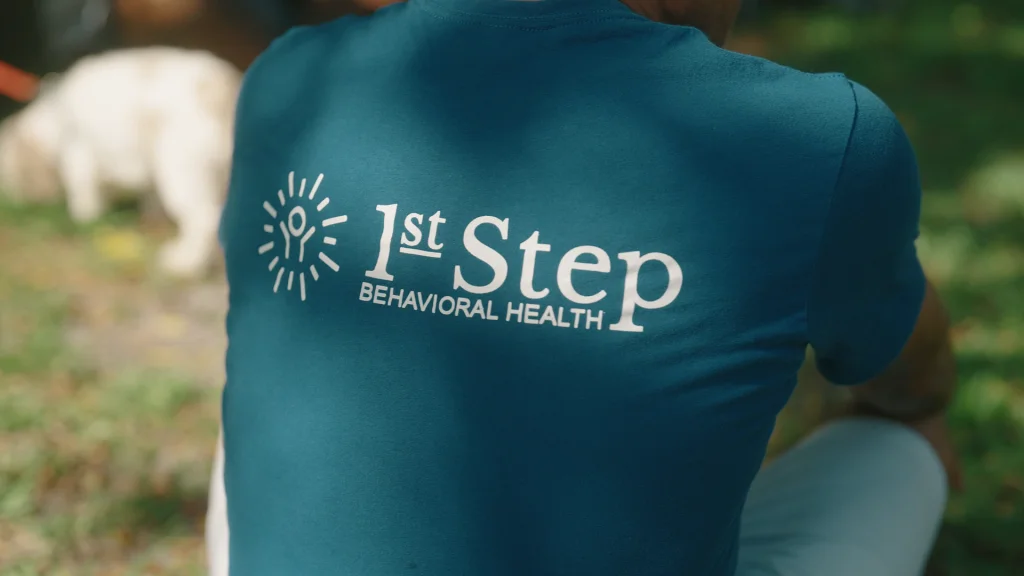Methadone Addiction Treatment
Methadone is a medication that is sometimes prescribed to help people beat opioid addiction. It can reduce opioid withdrawal symptoms and alleviate cravings, but it also has the potential for abuse and addiction.
Methadone addiction should not be taken lightly. It is a dangerous addiction that can not only hurt you but the ones you love around you as well. However, there is compassionate methadone addiction treatment available to you at our South Florida rehab facility. If you are struggling with methadone addiction, we encourage you to see the light at the end of the tunnel.


What is Methadone?
Methadone is a synthetic opioid medication primarily used in the treatment of opioid addiction, particularly for individuals who are dependent on heroin or other opioids. It is classified as a long-acting opioid agonist, which means it works by binding to the same receptors in the brain and body that opioids like heroin, morphine, and oxycodone bind to. However, methadone’s effects are longer-lasting, which helps to reduce cravings and withdrawal symptoms in people with opioid use disorder (OUD).
Methadone has a blocking effect on opioid receptors, which means that if a person takes an illicit opioid while on methadone, they may not experience the euphoric effects of the illicit drug. This can deter individuals from using opioids and reduce the risk of overdose.
Methadone can come in the form of a tablet or a liquid. Methadone treatment is typically provided through specialized opioid treatment programs (OTPs) or clinics. Patients receive their daily dose under medical supervision to ensure safety and appropriate dosing.
Is Methadone Addictive?
Methadone itself is an opioid, and like other opioids, it has the potential for dependence if not taken as prescribed. Like other opioids, methadone can produce euphoric effects, such as a relaxed mood, feelings of happiness, pain relief, and sedation. In high doses, it can lead to an altered state of consciousness and potentially an overdose.
People who abuse methadone may become addicted to it. In fact, methadone abuse and addiction are so common that this medication is no longer preferred in medication-assisted treatment (MAT). Instead, less addictive medications like buprenorphine or naltrexone are more commonly used.


How Does Methadone Addiction Begin?
Methadone addiction can quietly take root even when it’s initially prescribed by a well-intentioned physician. While methadone is a valuable tool in opioid addiction treatment, its use requires careful management to avoid unintended consequences.
Similar to how people can become addicted to other prescription drugs, methadone addiction can develop when people start taking it more often or in larger amounts than the doctor told them to. In some cases, people may obtain methadone illegally and abuse it recreationally, which is also likely to lead to addiction.
Side Effects of Methadone Abuse and Addiction
Methadone abuse is linked to a number of long and short-term side effects. For example, after regular use people develop a tolerance, meaning their bodies become less sensitive to the effects of the drug and they have to increase their dose to feel the desired effects. Higher doses of methadone can increase the severity of concerning side effects, such as:
- Dizziness or lightheadedness
- Sleepiness
- Nausea or vomiting
- Confusion
- Impaired thinking and cognition
- Seeming to be forgetful
- Impaired balance
- Coordination problems
- Constipation
People who abuse methadone may also become physically dependent on it, resulting in the development of withdrawal symptoms if they try to reduce their dose or stop taking it.
Signs of Methadone Addiction
Tolerance, dependence, and the development of withdrawal symptoms upon cessation are all tell-tale signs of addiction. However, methadone abuse can also change the way people think, feel, and behave. Other signs of methadone addiction include:
- Lying to a doctor about symptoms to get more methadone or visiting more than one doctor
- Continuing to use heroin or other opioids while taking methadone
- Increasing the methadone dosage without informing a doctor
- Combining methadone with other drugs or alcohol
- Lying to loved ones about using methadone
- Neglecting personal responsibilities due to drug use
- Loss of interest in passions and hobbies
- Continuing to use methadone even though it is causing serious problems in one’s life
If you or a loved one are struggling with methadone addiction, it is important to seek treatment as soon as possible.

When Methadone Addiction and Mental Illness Co-Occur
Anyone can develop methadone addiction. However, it’s more common in people who have other mental health conditions. In fact, addiction itself is a mental disease. People who suffer from problems such as depression or anxiety are more likely to abuse drugs like methadone.
Treating one condition without treating the other is counterproductive. Success is only possible when both the addiction and the mental health condition receive treatment at the same time. At 1st Step Behavioral Health, we understand the unique relationship between addiction and mental health, which is why our Florida rehab center provides dual-diagnosis treatment options for methadone addiction.
Methadone Addiction Treatment in Florida
At 1st Step Behavioral Health, we pride ourselves on offering a caring, supportive recovery environment for people who come to us from all over the country. From therapy to medical care, we can take care of all your needs. We offer top-quality care and methadone addiction treatment for our clients.
Our methadone addiction treatment programs in Pompano Beach offer various therapeutic approaches, including:
- Family therapy
- Individual therapy
- Group therapy
- Holistic therapies
We assign each client a primary care therapist and have a nurse practitioner on-site five days a week. We also offer dual diagnosis treatment for those who suffer from mental health issues such as anxiety or depression for which our medical team can prescribe medications and facilitate compassionate care.

Exploring Your Methadone Addiction Treatment Options at our Pompano Beach Rehab Facility
Our facility offers a wide range of treatment options for those facing mild to severe methadone addiction. Most clients start with inpatient rehab.
Inpatient treatment is especially ideal for those working through severe methadone addiction and/or co-occurring disorders. Compared to an outpatient program, our inpatient program provides around-the-clock care and support. From medical care to emotional support, our inpatient program in Florida is the ideal environment to start your recovery.
Living at our facility is one of the requirements of the inpatient program. Patients typically stay 28-90 days at the clinic, depending on the severity of their addiction. While at the clinic, family and friends are encouraged to schedule visits with clients to provide them with added support.
If flexibility and freedom are your main priority and concern, you’ll appreciate our outpatient rehab program. Outpatient rehab consists of scheduled days and hours each week to attend methadone addiction treatment at our facility.
During outpatient rehab, living at the facility is not required, but many clients choose to stay in our safe sober living homes. Outpatient treatment is a practical treatment option for people who cannot attend inpatient rehab due to responsibilities at work, school, or home.
The Advantages of a Sober, Methadone-Free Life
No matter how lost you or a loved one may feel, the potential to get better is there. We encourage you to recognize that there is the power to choose what kind of life you want to live.
There are many benefits to living a sober life, including:
- There is more time to invest in new hobbies – Ending a methadone addiction frees up a lot of time. This means you can now try out a new hobby you’ve always wanted to. Or, you can start participating in fun activities such as hiking or going to a museum. Time is valuable and now you can spend it doing something that fulfills you.
- You’ll build new connections – With more time on your hands and new hobbies, you’ll meet lots of new people. Meeting people through hobby-based clubs has a lot of advantages. You can make lots of friends and enjoy building connections with new people. If you’re an active person, consider joining a nearby sports league. Physical activity directly correlates to how we feel mentally. Exercise releases dopamine, a feel-good chemical, in your brain which increases a positive mood.
- You can start nurturing your relationships – Aside from building new friendships, appreciating current ones is really important too. More likely than not, your current relationships have struggled because of your addiction, but getting sober means you have time to repair and nurture them, giving back the support that was given to you.
You’ll have time for self-care – Self-care is another powerful tool in sustaining long-term sobriety. Having a healthy routine is something that really helps improve your mental health. For example, waking up early to meditate. Or, cooking a new dish every week. Now that you’re sober, you can do things you genuinely enjoy throughout the day. Although this seems obvious, people often get carried away with mundane tasks. Your life is a beautiful gift and you can fill it with whatever you choose.
Learn More About Our Methadone Rehab Program in Pompano Beach, Florida
At 1st Step Behavioral Health, we are committed to supporting you on every step of your recovery journey. While overcoming addiction isn’t easy, our methadone rehab program in Florida can help you conquer your substance abuse and achieve a sober, fulfilling life.
If you or a loved one is struggling with a methadone addiction, call or text us at (855) 425-4846 to begin with a confidential assessment.
